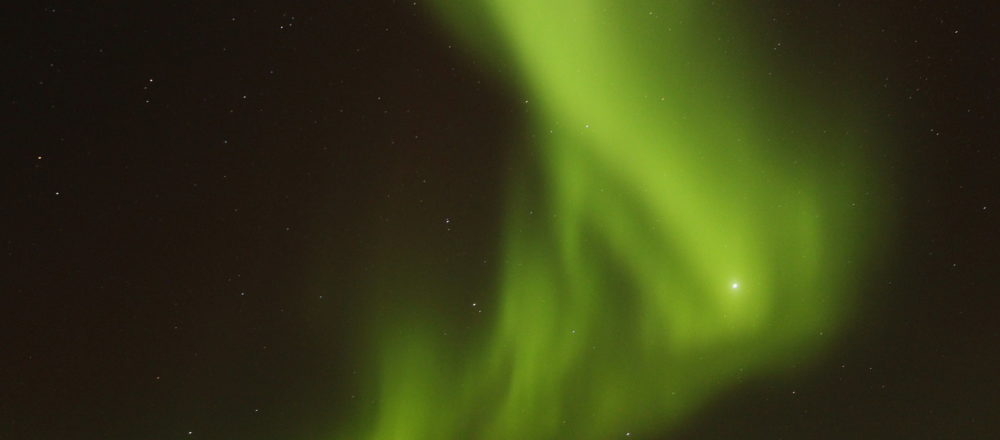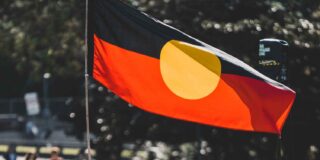The Quantum Words Perth Festival, Western Australia’s first festival dedicated to science, writing and creativity, was held at The State Theatre Centre of WA from 8–10 November 2019. Quantum Words Perth brought together an interdisciplinary cluster of researchers, performers, academics, writers and activists for a weekend interrogating insights found at the intersections of art and science. I had the privilege of attending the final three sessions of the festival: ‘Water’, ‘Writing the Universe’ and ‘Towards a Better World’.
The panellists of ‘Water’ didn’t take long to get talking about serious and pressing concerns, debating the catastrophic implications of local and global water shortages caused by climate change and overconsumption of resources. The discussion was frequently framed around a vocabulary of crisis: we’re running out of water, running out of resources, running out of time. Paul E. Hardisty, author and CEO of the Australian Institute of Marine Science, cited the dire situation faced in Yemen, where the stresses of extreme water scarcity have been compounded by poverty and civil war. According to Hardisty, we can look to the Middle East as a glimpse of Australia’s own geographic and political future; one which he argued would be fuelled by ‘water wars’ as our water supply is placed into increasing jeopardy.
I think there are problems with this comparison; ones which risk flattening the disparities between Yemen and Australia’s wealth, resources and ability to leverage political power on an international stage. Indeed, the privilege of framing the climate emergency as an impending catastrophe reveals the centering of Western, metropolitan experiences of that reality, where the most devastating and disrupting effects of climate change are largely still to arrive. But both globally and within Australia, the ramifications of climate change are not equally shared and experienced. Its impacts are unevenly felt in regional and non-metropolitan areas. In many cases, this results in First Nations peoples disproportionately bearing the brunt of changing climate conditions. In the Torres Strait Islands, legal action is being sought by the Traditional Owners against the Australian government, as rising tides destroy sacred sites and threaten their homes. ‘You can’t talk about water, and not talk about climate change,’ asserted Hardisty. He makes an important point, but to that I would add that you can’t talk about climate change without addressing social justice – an approach this particular panel, for the most part, did not engage with. One cannot speak of climate change in this country without acknowledging that the poisoning of land, sky and water have occurred as a direct consequence of colonisation and its concomitant capitalist greed. Gomeroi poet and law scholar Alison Whittaker has written compellingly on the fight led by First Nations peoples for water justice in her incisive article ‘Water, water, everywhere?’ The message is clear: if we are to speak of climate justice in a meaningful way here, then we must address the spectres of colonisation.
Throughout the festival, conversation returns to questions of language and knowledge. When we speak of ‘science’, whose knowledge is prioritised? Whose words are listened to? During the final panel ‘Towards a Better World’, Professor Len Collard, a Whadjuk Noongar elder, asked a fellow panellist a seemingly straightforward question: ‘what is science?’ Environmental scientist and writer HM Waugh replied, ‘it’s how we understand ourselves and our world.’ She emphasised the importance of the scientific process in her understanding of science, which was echoed in the remarks of Peter Newman, Professor of Sustainability at Curtin University, when he suggested that ‘we can use applied science to provide hope.’
But where might the limits of the scientific method lie? To whom is it providing hope? Professor Collard criticised the deployment of scientific discourse as a way of foregrounding European Enlightenment-inspired values, at the expense of First Nations knowledge and lived experiences of the world. ‘They brought that Northern Hemisphere knowledge here, to a different ecosystem,’ said Professor Collard, explaining that the result of this was the relegation of Indigenous knowledge to the realms of ‘dream knowledge’ or ‘soft knowledge’. Stories of Western science have become deeply embedded in the coloniser’s language. ‘But what about the language of the land?’ asked Professor Collard. ‘How many of you can speak Noongar?’ His question reverberated throughout the room, waves travelling through the air towards a largely uneasy audience. They made me falter – so long as we are ploughing along with colonial discourses through the English language, to what extent might quantum words be considered violent words, colonial words?
When asked to speak about the night sky during the panel ‘Writing the Universe’, Noongar Ballardong artist Maitland Hill stated: ‘you have to know and understand the boundaries of where you come from – who you are and what you are.’ For him, looking out is a matter of looking in. After spending the afternoon listening to the speakers at Quantum Words Perth, it seemed to me that responding to the critical issues facing our world – social injustice, climate change – depended upon just that. A collective recognition of where we come from and what our ensuing responsibilities are, in relation to our own positions within these intertwined and complex networks. Solving these challenges requires us to attend to the kinds of wisdom offered by both science and art, but in a way that is open to unlearning the oppressive epistemologies that have often marginalised the knowledge that truly belongs to this land. In our scientific pursuits, we may look to the oceans and the stars, to unravel distortions in time and space; but if we are to make meaningful steps towards addressing the crucial concerns facing our planet, we must first look into ourselves.



